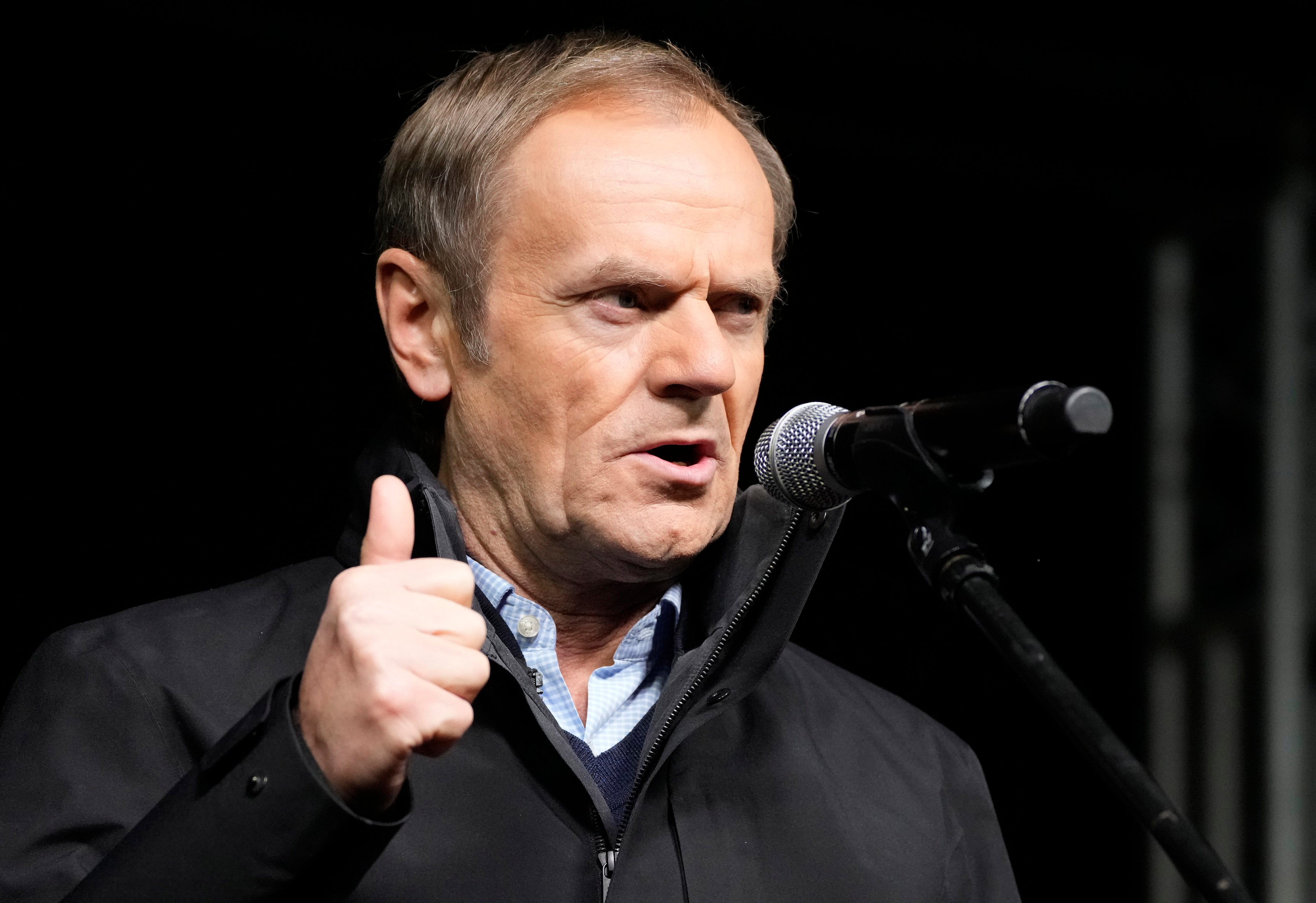Tusk says hacking marks crisis of democracy in Poland
The leader of Poland’s main opposition party is calling for the creation of a parliamentary commission to investigate surveillance after reports that powerful spyware was used against three people associated with the political opposition

Your support helps us to tell the story
From reproductive rights to climate change to Big Tech, The Independent is on the ground when the story is developing. Whether it's investigating the financials of Elon Musk's pro-Trump PAC or producing our latest documentary, 'The A Word', which shines a light on the American women fighting for reproductive rights, we know how important it is to parse out the facts from the messaging.
At such a critical moment in US history, we need reporters on the ground. Your donation allows us to keep sending journalists to speak to both sides of the story.
The Independent is trusted by Americans across the entire political spectrum. And unlike many other quality news outlets, we choose not to lock Americans out of our reporting and analysis with paywalls. We believe quality journalism should be available to everyone, paid for by those who can afford it.
Your support makes all the difference.Donald Tusk the leader of Poland's main opposition party, called Tuesday for the creation of a parliamentary commission to investigate surveillance after reports that powerful spyware was used against three people associated with the political opposition.
“This is an unprecedented thing in our history. This is the biggest and deepest crisis of democracy after 1989,” said Tusk, who served as Poland's prime minister from 2007-2014 and president of the European Council from 2014-2019.
He said that his party would apply for the establishment of a commission of inquiry in the Sejm, the lower house of parliament, to examine surveillance with Pegasus, spyware which is made by the NSO Group of Israel and sold only to government agencies.
The ruling Law and Justice party has a majority in the parliament and it wasn't immediately clear if Tusk would succeed in his bid.
He argued that it was in the interest of all political forces in Poland to clarify the situation, saying he believed that nobody wants to be eavesdropped on with impunity.
The hacking of three people with Pegasus was reported recently after a joint investigation by The Associated Press and Citizen Lab a cyber watchdog at the University of Toronto.
The hacking targeted Krzysztof Brejza, an opposition senator, at a time that he was the party's election campaign chief of staff in 2019; Roman Giertych, a lawyer who has defended Tusk and several other opposition figures in sensitive cases; and Ewa Wrzosek, a prosecutor who is fighting for the independence of prosecutors as the ruling right-wing party seeks to impose political control over all branches of the judiciary.
Prime Minister Mateusz Morawiecki on Tuesday reiterated his accusation that the reports were “fake news.”
He said he had no knowledge of any surveillance but also suggested that if there had been any, it wouldn't necessarily have been the work of Polish intelligence services. He said there were other security services in the world, some of who are “not entirely friendly toward Poland” and “act very ruthless.”